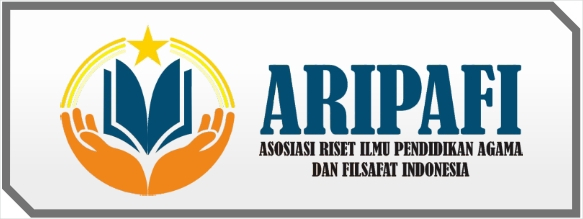Upaya Meningkatkan Motivasi Belajar melalui Kompetensi Sosial Guru PAK pada Siswa Kelas 2 di SD Elpida Noelbaki Tahun Ajaran 2022/2023
DOI:
https://doi.org/10.55606/sinarkasih.v1i3.376Keywords:
Learning Motivation, Social Competence, Religious Education TeachersAbstract
Students' motivation to learn can be seen if the student tries to make an effort diligently to achieve what he wants. A student who has good motivation will get good results too. Learning motivation is like a machine, if there is a driving force then the machine will operate according to what the operator wants. Likewise with motivation, if there is a driving force then there is an effort within a person to carry out certain activities to achieve a goal. However, motivation is not always shared by everyone. In his book, Soemanto defines motivation as a change in energy within a person which is characterized by effective encouragement and reactions in achieving a certain goal. What is meant by learning motivation is an urge that arises within students to act or carry out an activity or business because of a goal, need or desire that must be satisfied. Looking at some of the explanations above, the author sees that the lack of student motivation in learning is a significant problem because remembering the objectives of learning and the efforts made by the teacher do not bring the results as expected. Thus learning is considered less successful. In this research, the type of research used is classroom action research (PTK). The research location is Elpida Noelbaki Elementary School, which is located at Jalan Sahabat no. 01, Oehau Hamlet, Noelbaki Village, Central Kupang District, Kupang Regency, East Nusa Tenggara Province. The subject of this research is a religious education subject teacher for grade 2 elementary school students. The methods used in the research are interviews and observation. The teacher's treatment at the initial stage of learning has an impact on the growth of students' learning motivation. This is characterized by enthusiasm in following lessons. As many as 88.8% of students showed an enthusiastic attitude in participating in lessons. The teacher's treatment at the initial and final stages of learning has an impact on increasing student learning motivation. This is characterized by enthusiasm in following lessons. As many as 100% of students showed an enthusiastic attitude in participating in the lesson. Based on the implementation of the first to third cycles, it is known that the application of teacher social competencies such as teacher interaction, social skills, sympathetic attitudes and the teacher's adaptability towards students in following lessons will increase student motivation in learning. Students look enthusiastic and enthusiastic in receiving lessons in class.
References
Arikunto, S. (n.d.). Manajemen pengajaran secara manusiawi.
Aritonang, K. T. (2008). Minat dan motivasi dalam meningkatkan hasil belajar siswa.
As’ad, M. (1998). Psikologi industri. Yogyakarta: Liberty.
Badudu, J. S. (1996). Kamus besar bahasa Indonesia.
DePorter, B., Reardon, M., & Hernacki, M. (2013). Quantum teaching: Mempraktikkan quantum learning di luar kelas. Bandung: Kaifa.
Djamarah, S. B. (2002). Strategi belajar mengajar. Jakarta: Rineka Cipta.
Giblin, L. (2009). Skill with people. Jakarta: Gramedia Pustaka.
Hamalik, O. (2003). Proses belajar mengajar. Bandung: Bumi Aksara.
Hardik, K., & Wardhani, N. (2008). Penelitian tindakan kelas. Jakarta: Universitas Terbuka.
Hendricks, H. (1988). The Christian educator’s handbook on teaching. Viktor Books.
Janawi. (2011). Kompetensi guru: Citra guru profesional. Bandung: Alfabeta.
Mardalis, M. (2011). Interaksi dan motivasi belajar mengajar. Jakarta: Raja Grafindo Persada.
Mudjiono, M., & Dimyati, M. (2005). Belajar dan pembelajaran. Jakarta: Dekdikbud.
Mulyasa, E. (2008). Kurikulum berbasis kompetensi. Bandung: Remaja Rosdakarya.
Mulyasa, E. (2012). Standar kompetensi dan sertifikasi guru. Bandung: Remaja Rosdakarya.
Pidarta, M. (2007). Landasan kependidikan: Stimulus pendidikan bercorak Indonesia. Jakarta: Rineka Cipta.
Sadily, H., & Echos, R. (2004). Kamus Inggris-Indonesia. Jakarta: Gramedia.
Sahertian, P. A. (n.d.).
Soemanto, W. (1987). Pendidikan psikologi. Jakarta: Bina Aksara.
Soparno, A., & Suhaenah. (2000). Membangun kompetensi belajar. Jakarta: Dikti Dediknas.
Suhana. (2012). Konsep strategi pembelajaran. Bandung: Refika Aditama.
Suparlan. (2005). Menjadi guru efektif. Yogyakarta: Hikayat Publishing.
Winardi, J. (1992). Manajemen perilaku organisasi. Bandung: Citra Aditya.
Downloads
Published
How to Cite
Issue
Section
License
Copyright (c) 2023 Sinar Kasih: Jurnal Pendidikan Agama dan Filsafat

This work is licensed under a Creative Commons Attribution-ShareAlike 4.0 International License.


















